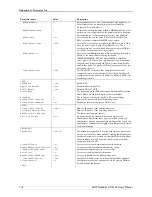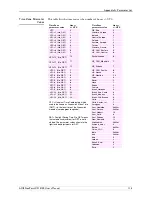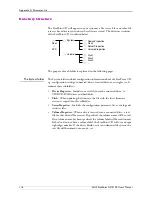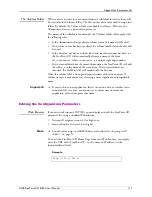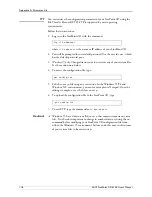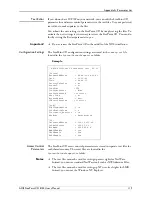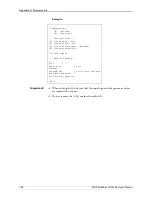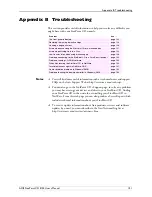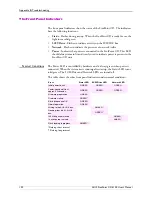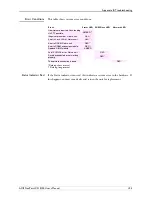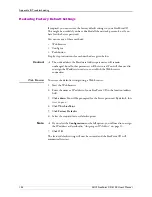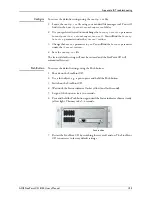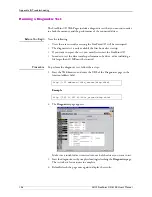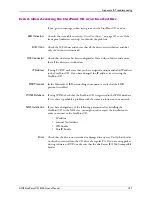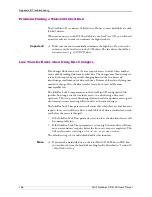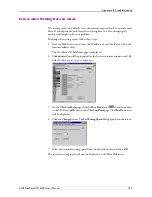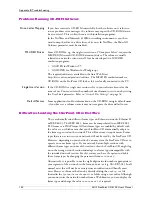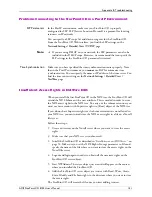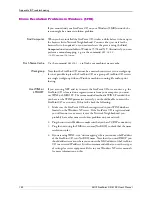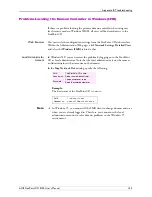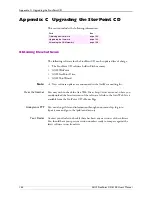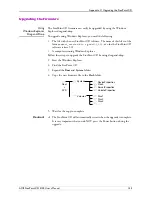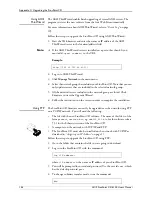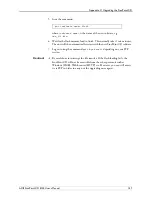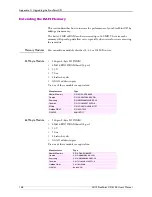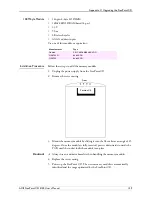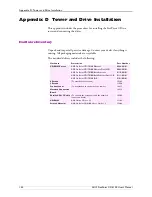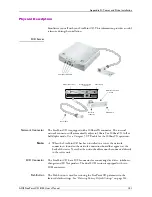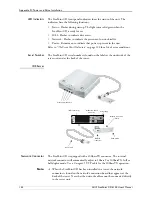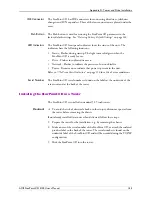
Appendix B: Troubleshooting
128
AXIS StorPoint CD E100 User’s Manual
Problems Finding a Wide-SCSI Hard Disk
The StorPoint CD is a narrow (8-bit) device. However, most hard disks are wide
(16-bit) devices.
When you connect a wide-SCSI hard disk to your StorPoint CD, you will need
an active converter in order to terminate the high data byte.
Important!
Make sure the converter
actively
terminates the high byte. Do not use the
converter on the last device in the SCSI chain. The last device should be a
narrow device, e.g. a CD/DVD drive.
Low Transfer Rates when Using Disc Changers
Disc changer flutter can occur if a user requests access to a disc when another
user is already reading data from another disc. The changer may then attempt to
service both requests by repeatedly changing between the two discs and
transferring a small amount of data each time. Because of the relatively long time
needed to change discs, the data transfer rate to both users will become
unacceptably low.
The JukeBox Lock Time parameter in the StorPoint CD configuration file
specifies how long a user has exclusive access to a disc during a data read
operation. This is to prevent disc change flutter in order to optimize access speed
when many users are accessing different discs in the same changer.
The JukeBox Lock Time parameter will ensure that when there are simultaneous
requests for access to different discs, a sizable block of data is transferred to each
user before the access is changed.
•
If the JukeBox Lock Time parameter is set too low, the data transfer rate will
be unacceptably low.
•
If the JukeBox Lock Time parameter is set too high, the disc drive will time-
out on a second user’s request before the first user’s access is completed. This
will result in users receiving a ‘
CD-ROM not available
’ notice.
The default setting is 0 seconds which disables this function.
Note:
If you attach a hard disk drive to the StorPoint CD SCSI bus or IDE bus,
you can benefit from the hard disk caching facility described in “Section 10
-
Hard Disk Caching
” .

